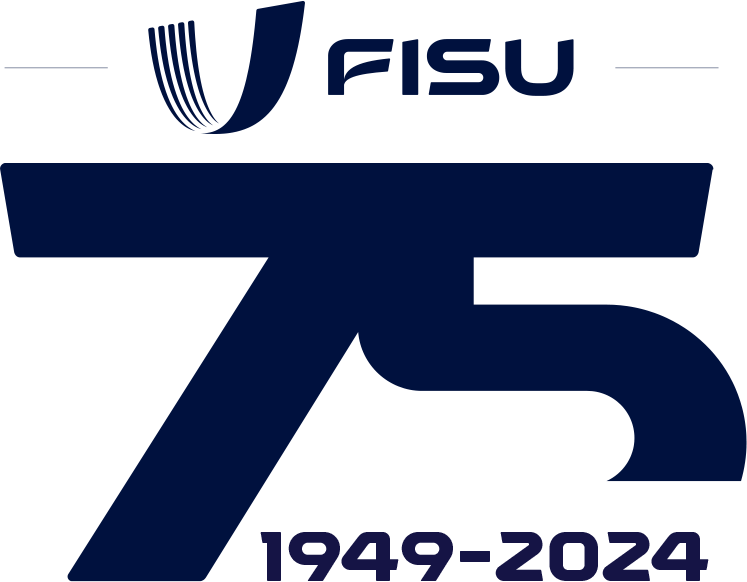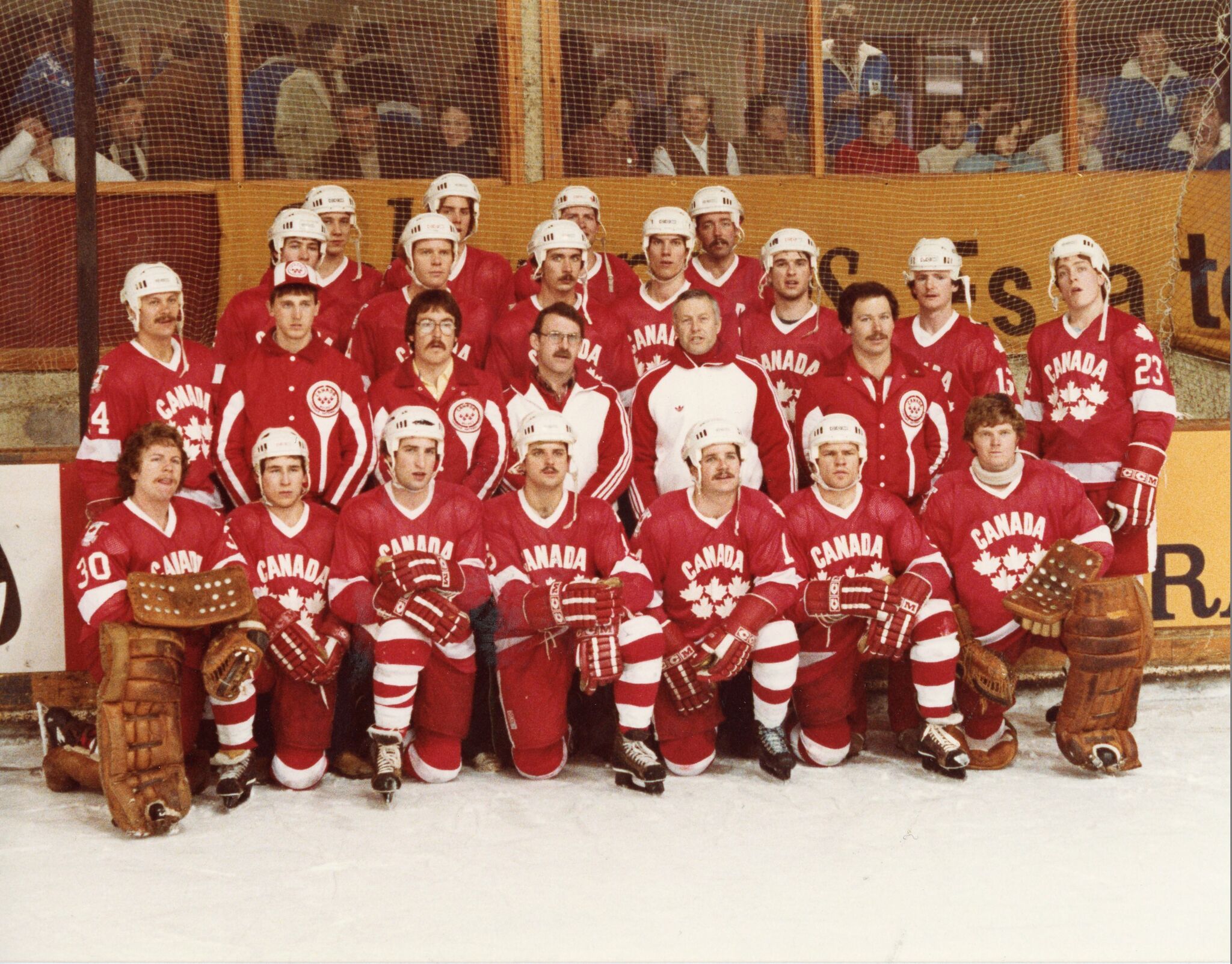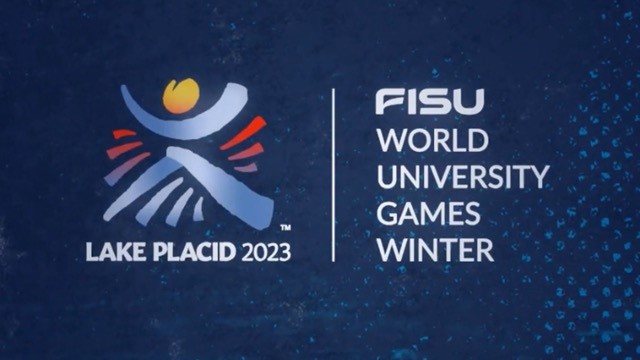University of Alberta Golden Bears, representing Canada and gold medal winners at Jaca 1981 FISU World University GamesLake Placid has a storied history with the sport of ice hockey as the home to the Miracle on Ice, when in 1980 the United States men’s Olympic team defeated the powerful Soviet Union on their way to ultimately winning the gold medal. As the Lake Placid 2023 FISU World University Games approach, we explore the origins of this high speed, physical game.
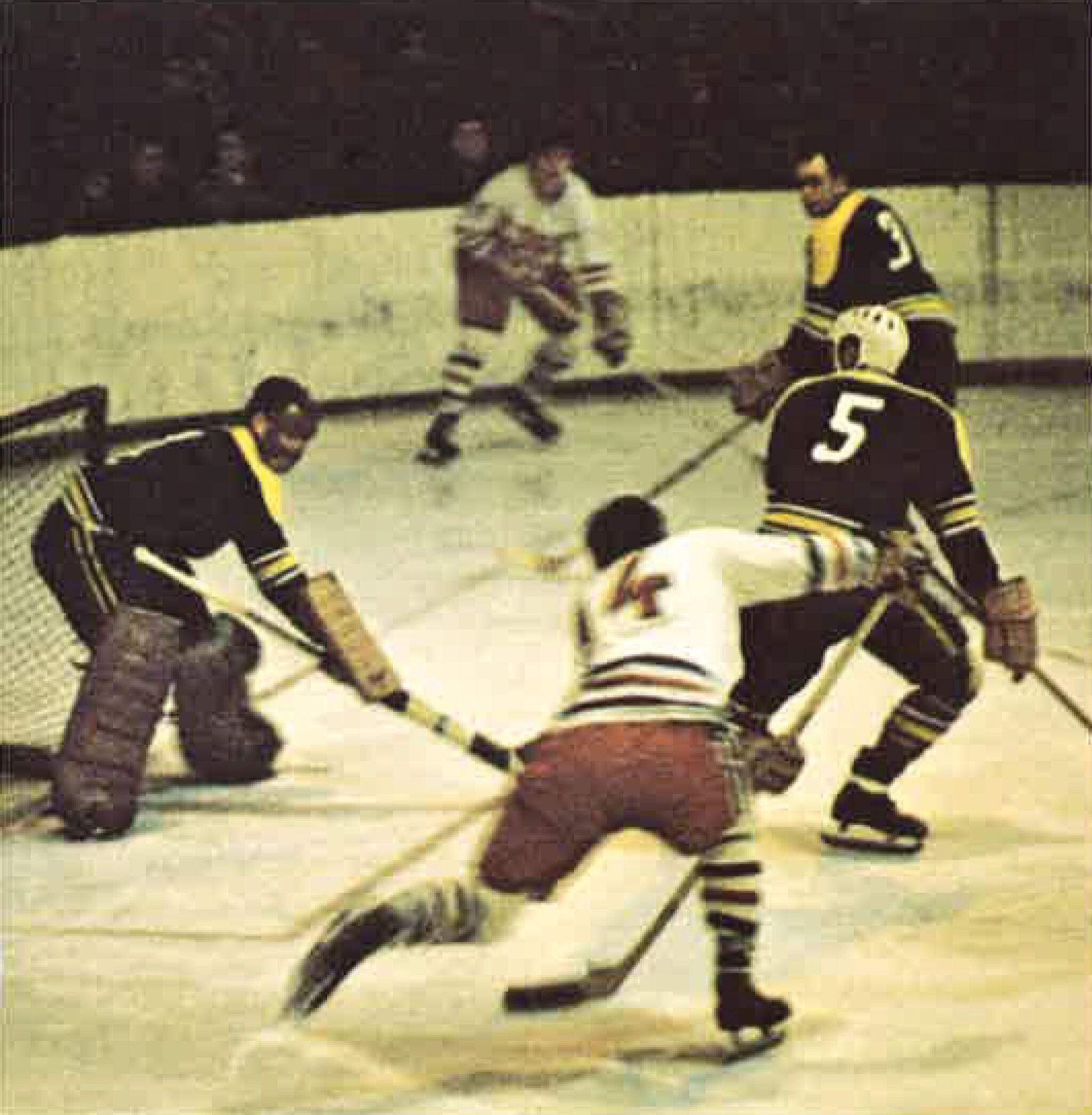 Ice hockey action from the Lake Placid 1972 FISU World University GamesVarious “stick and ball” games have been historically noted in Ancient Greece and Egypt, while Indigenous peoples in the Americas also played these games well prior to the arrival of Europeans. Subsequent games of hurling in Ireland, bandy in England, and chamiare (or shinty) in Scotland influenced what ice hockey has become. From these early games, it may be chamiare, first played on ice in Scotland in the early 1600s, that most closely resembles what we see today, though skates were not used then as they were not brought to the British Isles until later that century. England’s bandy soon evolved to incorporate skates.
Ice hockey action from the Lake Placid 1972 FISU World University GamesVarious “stick and ball” games have been historically noted in Ancient Greece and Egypt, while Indigenous peoples in the Americas also played these games well prior to the arrival of Europeans. Subsequent games of hurling in Ireland, bandy in England, and chamiare (or shinty) in Scotland influenced what ice hockey has become. From these early games, it may be chamiare, first played on ice in Scotland in the early 1600s, that most closely resembles what we see today, though skates were not used then as they were not brought to the British Isles until later that century. England’s bandy soon evolved to incorporate skates.
These games spread, including to eastern Canada by British soldiers in the mid 1800s, which matched a similar game played by Canada’s First Nations in the 19th century. This was around the same time that hockey played on grass also developed in Britain.
It has long been assumed that the term ‘hockey’ originated from the French term ‘hoquet’, meaning shepherd’s staff, because of the shape of the stick. This, however, has been challenged as a book written in 1773 called Juvenile Sports and Pastimes references ‘hockey’ in discussing the object with which the game was played, a ‘cork-bung’ or barrel plug. That object would be made out of wood and rubber over history and would eventually become flatter so it would not elevate, as a ball would.
There is information to suggest organised games were played in Britain in the early 1870s, but the International Ice Hockey Federation (IIHF) has stated the first organised game of ice hockey was played in Montreal, Canada, 3 March 1875. This game of nine players aside was played at Montreal’s Victoria Rink.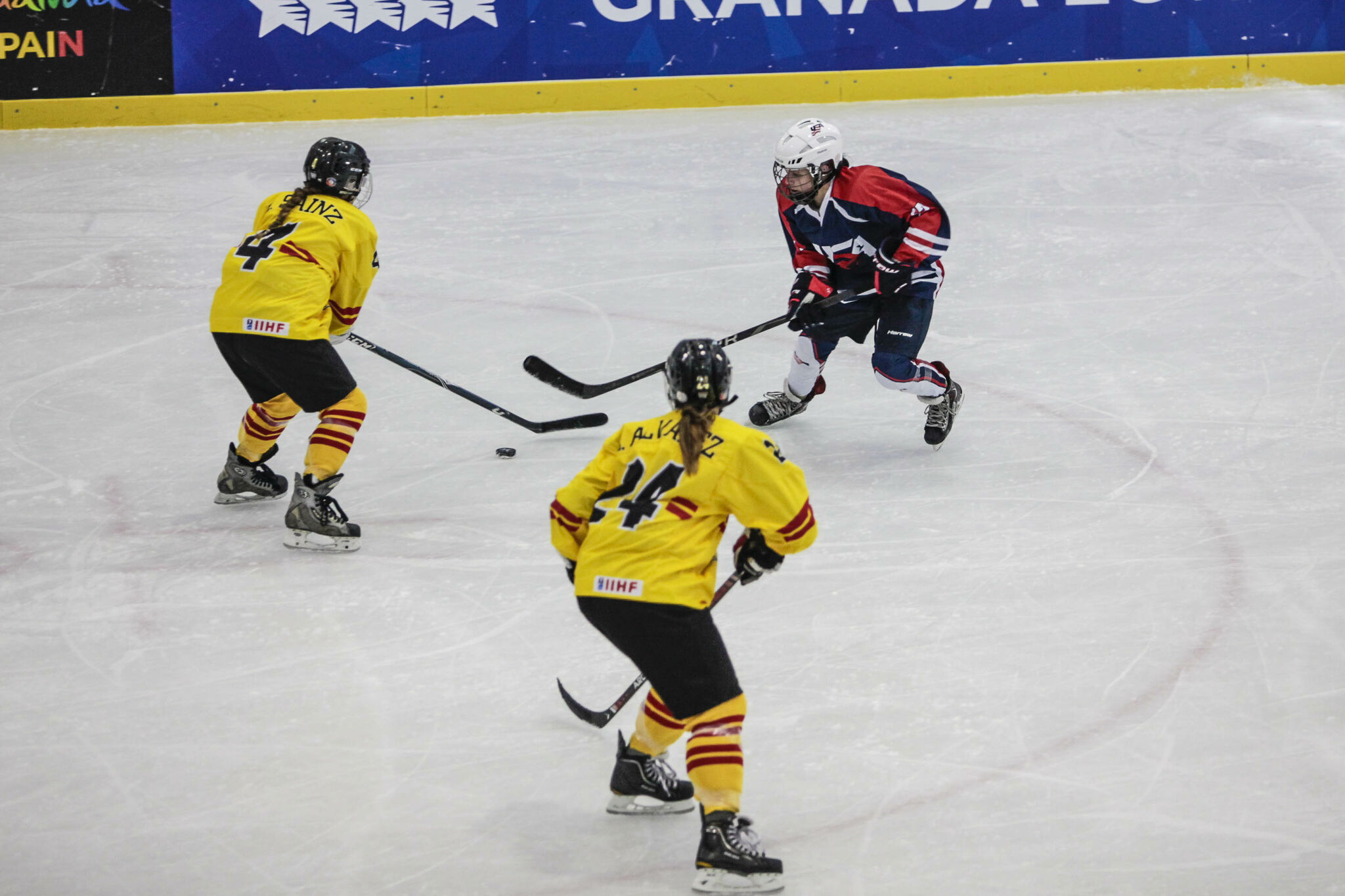 USA and Spain meet in women’s hockey at the Granada 2015 FISU World University Games
USA and Spain meet in women’s hockey at the Granada 2015 FISU World University Games
From these humble and wide-ranging origins, the game has continued to evolve. It has gone from nine players aside, to seven in the early 20th century, to what is now seen today with each team using five skaters and a goaltender. The game has also spread around the world with the IIHF having 83 member national associations.
The tradition of ice hockey at the FISU World University Games will continue in 2023 in Lake Placid. Having first appeared at the FISU Games in 1962 in Villars, Switzerland, it will make its 26th appearance in 2023. Women’s hockey competition was added in Harbin, China in 2009 and has appeared in each edition of the FISU Games since.
Eight teams will compete in the women’s tournament, with 12 seeking medals on the men’s side. All the flash, speed, and excitement of ice hockey can be seen during preliminary games in Canton and Potsdam, with the medal round games being played in Lake Placid’s Herb Brooks Arena starting 20 January. More information on ice hockey at the Lake Placid 2023 FISU World University Games can be found here.
The following references and articles were used in compiling this story:
The Canadian Encyclopedia – Origins of Ice Hockey | The Canadian Encyclopedia, Jean-Patrice Martel, February 6, 2019; History.com – Who Invented Hockey? – HISTORY, John Banks, April 22, 2022; International Ice Hockey Federation – History (iihf.com), 2008
